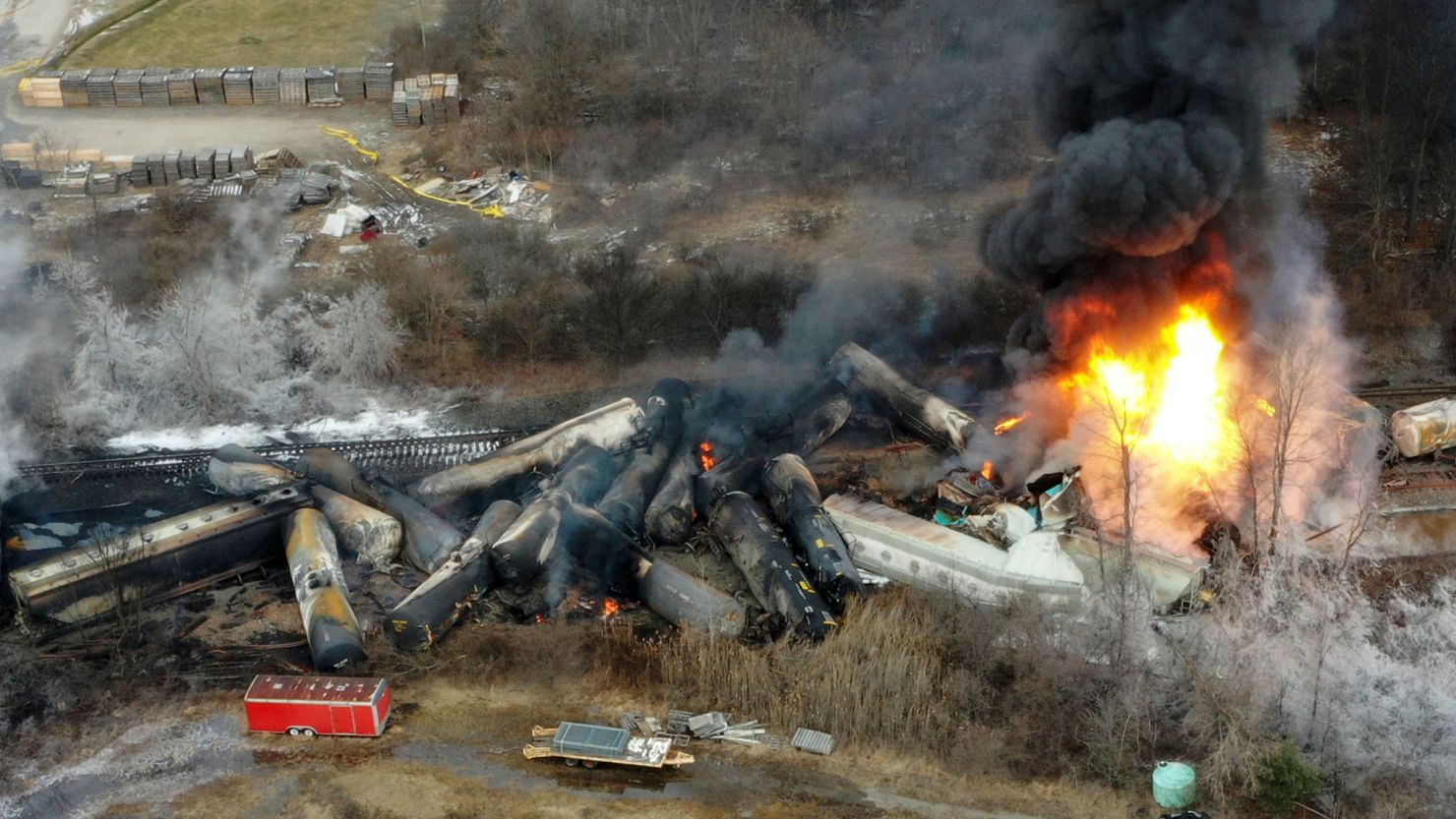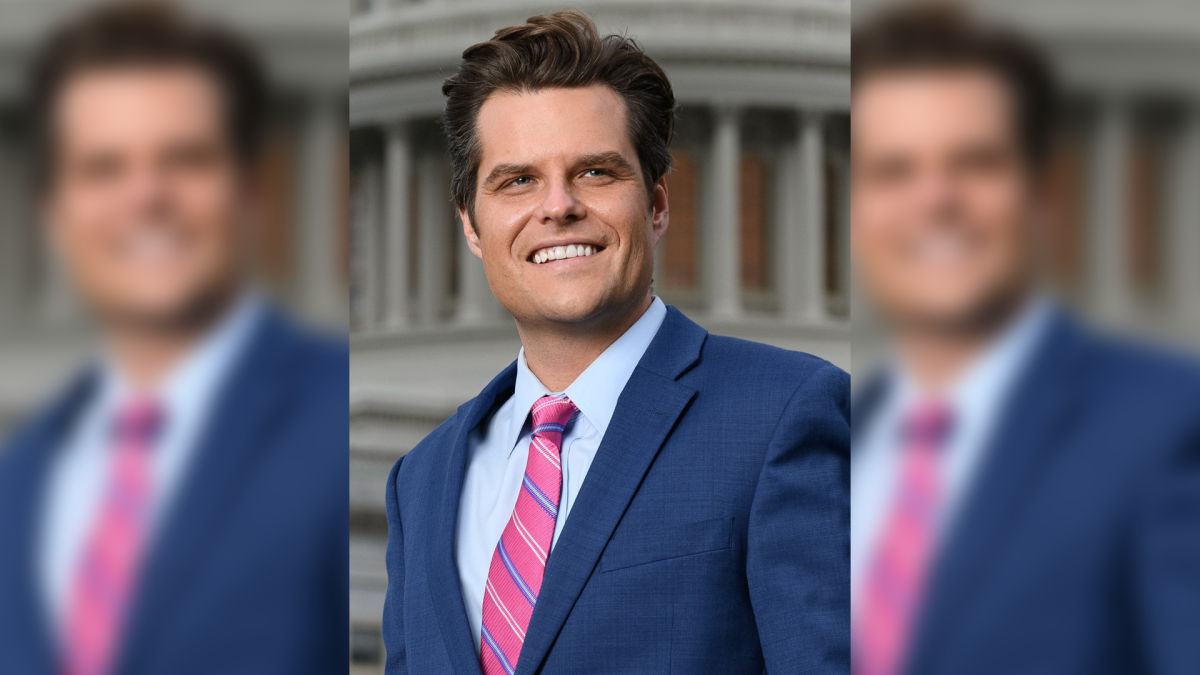CNN — President Joe Biden will visit East Palestine, Ohio, on Friday, more than a year after a train derailment sent more than 1 million pounds of toxins into the town’s soil, water and air.
Biden has been under intense pressure to visit East Palestine since the Norfolk Southern train derailed on February 3, 2023. The White House said shortly after the train’s derailment that the president would find a time to visit, but that did not happen last year.
Former President Donald Trump visited East Palestine about three weeks after the derailment on February 22, and Transportation Secretary Pete Buttigieg visited the next day.
Trump during his visit criticized Biden’s absence and what resulted was a political uproar, all while residents said they simply wanted to know whether their water was safe to drink.
Biden’s visit comes at the invitation of East Palestine Mayor Trent Conaway and other community leaders, according to the White House. Conaway has been critical of Biden’s failure to visit East Palestine sooner, telling Fox News last month: “My personal opinion is the best time for him to come would be February of 2025, when he is on his book tour.”
The White House said the president would visit East Palestine to “meet with residents impacted by the Norfolk Southern train derailment and assess the progress that his Administration has helped deliver in coordination with state and local leaders to protect the community and hold Norfolk Southern accountable.”
“He also has heard loud and clear from the folks in East Palestine that they don’t want to be defined by an event,” White House press secretary Karine Jean-Pierre said earlier this week. “And so, he’ll speak to the administration’s work to deliver on the needs for family businesses that are affected.”
While nobody was killed in the Norfolk Southern crash, the train’s derailment and the later decision to vent and burn five tankers containing cancer-causing vinyl chloride created a plume of toxic smoke that could be seen from space and caused a panic over the quality of the town’s drinking water.
Hundreds of residents were ordered to evacuate. Some moved away permanently. Others who eventually returned said they had developed rashes, sore throats, nausea and headaches after returning to their homes, and worried the symptoms were related to chemicals released after a derailment.
In the aftermath of the derailment last February, NTSB Chair Jennifer Homendy said the accident was “100% preventable,” but efforts to address rail safety have been stymied by Republicans in Congress, Buttigieg said last month.
“Almost one year after the Norfolk Southern derailment, Congress has still not passed the bipartisan Railway Safety Act,” he said. “It should not be the case that one year after that derailment, we are still waiting for Congress to act, and yet we have seen many who had a lot to say about this in Congress a year ago still not make clear on the record whether they are for or against this bill, and we’ve seen some House Republicans who have now voted twice to pass legislation that would cut railroad safety fund funding and track inspections.”
But Buttigieg previously acknowledged some mistakes in his own response, saying he should have visited East Palestine sooner and that he failed to anticipate the political fallout from the derailment.
The Environmental Protection Agency has overseen the removal of more than 174,000 tons of contaminated soil from the site, but questions about whether toxins still lurk remain. EPA Administrator Michael Regan told reporters last month that his agency was confident “the residents of East Palestine are not at risk from impacted surface water, soil or air from the derailment.”
But pressed last month whether Biden would drink the water during his visit, Jean-Pierre demurred.
“You know, this is not about some sort of political stunt here, this is not what this is about,” she said. “This is about this president being a president for everyone and showing up showing up for this community, that’s what this is about. Not going to get into some sort of political stance about drinking water, what we’re going to focus about is making sure they have what they need.”




